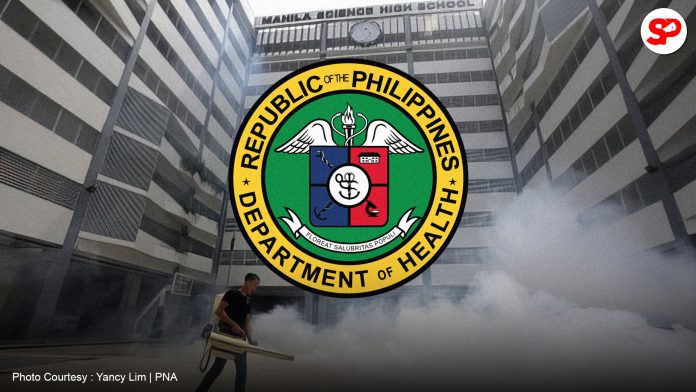MANILA – Immunization against dengue prevents severe cases and offers broader protection, an expert said Tuesday.
In a news release, Vaccine Expert Panel head Nina Gloriani said sustained preventive efforts and innovative solutions are important in combating the mosquito-borne disease.
Department of Health (DOH) latest data showed that the number of dengue cases recorded from January 1 to Oct. 4 is 82 percent higher than during the same period last year.
There are 269,467 confirmed infections as compared to 147, 678 cases last year.
School-aged children, particularly those up to 9 years and between 9 to 16 years, remain the most vulnerable to dengue.
While the DOH’s 4S strategy is essential, Gloriani noted that it is not consistently implemented across the nation.
The 4S strategy means search and destroy mosquito-breeding sites; self-protection; seeking early consultation; and support fogging and spraying in hotspot areas.
“Complacency is a problem we’re seeing not just in communities but perhaps among authorities as well,” she said.
“There are at least two new dengue vaccines currently in development. The goal is to prevent severe cases and offer broader protection.”
First, second generations
The introduction of second-generation dengue vaccines offer hope for more effective prevention vs the first generation.
First-generation vaccines can be given to people who already had dengue infection. Anyone who wants to get this jab must first undergo screening.
The second-generation vaccines may be given to population groups with or without a history of dengue infection.
They use the dengue virus 2 imitating the dengue infection and engaging the body’s natural defenses.
They also focus on targeting dengue’s four serotypes and include components that address the non-structural protein 1, which is associated with severe dengue.
Gloriani said first-generation vaccines pose challenges on accessibility and convenience due to the testing requirement while the second-generation ones allow wider use and provide expanded coverage.
The World Health Organization has recommended the use of second-generation vaccine among children aged 6 to 16 years in areas with high dengue burden and high transmission intensity.
Other Southeast Asian countries like Indonesia, Thailand, Malaysia and Vietnam are already introducing the next generation vaccines.
On the other hand, the Philippines is taking a more cautious approach to ensure sufficient public education on vaccination.
In 2024, more than six million cases of dengue were recorded in Brazil, peaking during the summer between the months of January and March.
“Brazil has faced significant outbreaks and tried mass immunization with the vaccine. However, vaccinating a large portion of the population requires more resources, which is not always feasible,” Gloriani said. “The goal is to vaccinate a large enough segment of the population to achieve herd immunity.”
She added dengue cases can be managed, especially in countries like the Philippines where the disease remains endemic, with integrated approach to dengue prevention and control, including vaccination and public education. (PNA)

